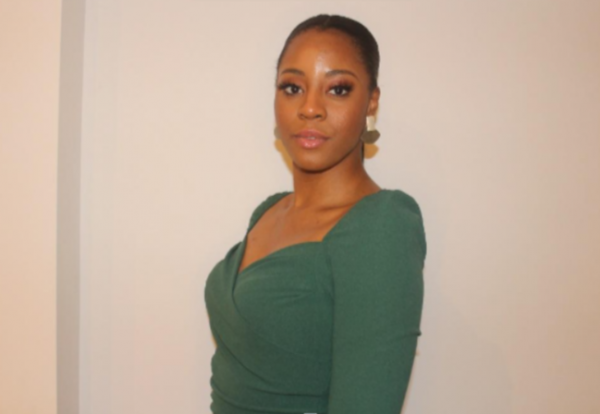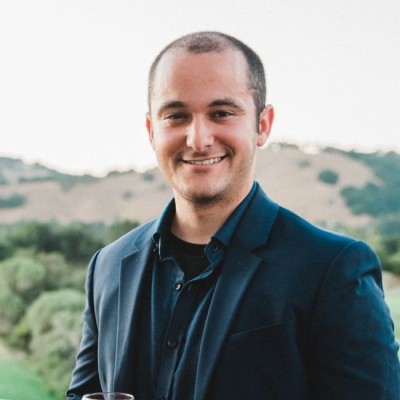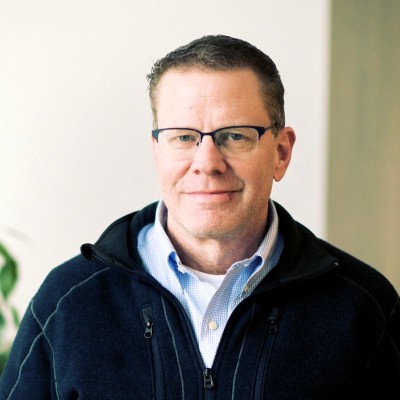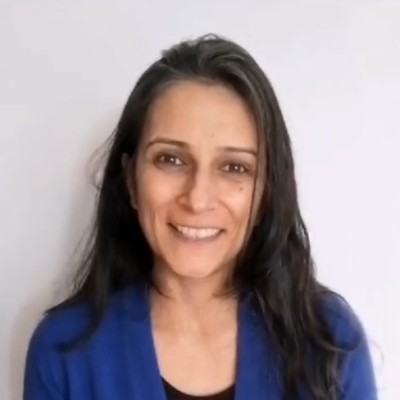Chi Okafor is an experienced founder with a demonstrated history of working in the social entrepreneurship industry. An MBA graduate of the University of Oxford and one of the 25 young Nigerian women champions for UN Women Beijing +25, she has over 7 years professional experience working on gender-focused projects across communities, governmental and non-governmental organizations. She is the Founder-President of The Walk with Women and Children; an organization that leverages off the ‘power of the collective’ to advance the personal, social, health, education and economic rights of girls and women. She also doubles up as the CEO of Kendake Honey- a socially conscious business, connected to African roots and women-owned that combines together to create a powerhouse brand that empowers disproportionately affected female and youth groups to become sustainable income generators within their respective communities.
Chi’s passion and commitment to driving gender parity has led to key engagements between the Houses of Parliament London, Senate of Nigeria, United Nations Addis Ababa and TEDx.
What were your initial years of growing up like? Tell us about your life before starting your corporate journey/venture/initiative.
I am of Nigerian heritage, but was born and bred in the UK. When raising me, my parents instilled Nigerian cultures and practices in her, which made me intrigued by the country. After graduating from King’s College London, where I studied pharmacy, I moved to Nigeria on my own to work with an NGO focused on maternal and child healthcare. This job required me to operate in the more impoverished areas of the nations. My experience and interactions on the field would cause me to be deeply disappointed by the status of women in the country, and how they were treated. I felt that being a woman was a hindrance in Nigeria because of the country’s social norms and ideals. For example, 18 million children out-of-school, with over 10 million being young girls, 145 women of reproductive age die daily from pregnancy-related complications or that 10% of boys and 25% of girls will have experienced some form of sexual violence before the age of 18. Solving these issues has been the driving force behind my dedication to this sector.
Was there any turning point in your life that changed your journey? If so, what was it? Please tell us the backstory behind it.
Yes, Kendake was initially running as a successful for-profit business but I had always felt that it lacked something and wasn’t completely fulfilled by it and there was a particular occasion that stirred this.
I went to an office to discuss support for the expansion of the apiary and the man sitting across from me at the meeting said ‘I was too young to be taken seriously’ and that his best advice for me would be to ‘add some weight’ so as to fill out a bit more and get married and then people would know that I was ‘ready for business’. I was shocked and confused because I couldn’t work out what my age, body size or my marital status had to do with running a business? On another occasion, a customer called demanding to speak to the owner of the business and when I told him that it was on to her, he responded by saying: ‘ How possible is it that the owner of this business is a woman?’
The most discouraging part of this experience is that so many women can relate to this in one way or another. I began thinking about every other woman who has had to experience the same, and how many business ventures and ideas may have been halted because women felt discouraged from pursuing them due to sexist comments like that.The thought of limiting the dreams, purpose and expressions of women like me based on their gender did not sit well with me and is the basis of my decision to dedicate to advocating for women in positions of leadership, ownership of successful businesses and women taking up that space which has been typically viewed as “reserved for men”.
Every industry that is now a large-scale, top-notch business once started as a small idea in the minds of entrepreneurs. What was that idea that made you start this brand? How did such a unique idea strike you, and what motivated you to “YES, go for it?”
There was a particular occasion where I stumbled across a woman harvesting honey in the village, and I would order as many kegs as possible from her and when I got to town between my family and friends, it would always leave my hands.This experience sparked the idea for the business! There was a clear niche in the market for organic African honey as you’d rarely see this type of product on the supermarket shelves.
I wanted to widen the Nigerian and female representation, especially as organic honey had so many uses and so much value to us all. I started researching and I knew I wanted to incorporate some form of social impact into its production, making sure to invest in the Nigerian community. That’s when I decided to launch Kendake Honey.
Tell us something about your initiative or current role. What is it about, and what impact are you trying to make?
As the Founder-President, of The Walk with Women & Children and CEO of Kendake Honey, I am working towards empowering women by reducing the gender gap in leadership roles and establish women as sustainable income generators in line with the targets of the Sustainable Development Goal (SDG) 5 and SDG 8.The fabric of these organisations are creating gender inclusive environments and equitable economies. Our latest initiative – Youtube Channel (Chi Okafor) uniquely seeks to foster collaboration and partnerships between women across the globe providing them with the platform to tackle these issues, rewrite history themselves and set a better foundation for their children.
Everyone has their own set of challenges when starting an entrepreneurial journey. Still, the most essential part for others to learn is how you deal with those. Would you like to share with us your challenges and your coping mechanisms?
Doing business in Nigeria is known to be challenging and it comes with a series of complications. There was a fire outbreak on one of the farms early last year because I didn’t fully understand the farming process in rural African areas. Due to the expensive nature of herbicides, farmers sometimes literally burn the ground to get rid of weeds. One would normally create a firewall to prevent specific parts from being burned but unfortunately I learnt this the hard way. While the farm was recovering, our farm was burnt a second time but this time intentionally by Fulani herdsmen. As you’d imagine this was an extremely disheartening and discouraging experience, however, I decided to weather this storm because I knew that there was a lot to gain on the other side.
Success comes from a healthy mix of dedication, consistency and especially perseverance and this is something our business strives to attain.
While the global pandemic of COVID-19 is associated primarily with adversities, it has also brought about a true boom in startups, with successful entrepreneurship in many countries. The pandemic has impacted all of us in one way or another. Would you like to share your experience on a personal and professional level?
Yes, you are right. The pandemic was a very trying time for all of us and a moment in history that we will never forget on a personal and professional level. What I have learnt is to keep going! It may be quite cliché advice, but considering the events of the pandemic – quite necessary.
Your journey and your vision are very inspiring, but are there any achievements or accomplishments you would like to mention?
I have recently started a YouTube channel (Chi Okafor) where I am sharing my journey as an empowered woman and speaking with other empowered women across various sectors in a bid to empower other women and young girls to do the same. This initiative aims to share the experiences and perspectives of empowered women to help overcome the barriers that affects us all. This community will become a safe space for women and young girls to learn and share the experiences affecting them – I’m so excited to continue to build this community and encourage you all to join us on the journey as we grow together.
Would you like to share with our young budding women entrepreneurs the change you would like to see in the world if given an opportunity?
Statistics state that gender equality will take 286 years to attain and this has only been exacerbated by COVID-19. This is not a good statistic and is directly or indirectly correlated to the inequality felt by women across the globe. I am on a mission to ensure that there is a reduction in the number of years taken to reach gender equality globally and that there is a balanced representation of women in leadership positions (whether it is in trend or not to do so). There is a need for a balanced representation of women in leadership because it is about the diversity in perspective, skillset and thought processing towards handling high- level issues. It will proffer solutions that factor in usually marginalised groups (women & children) that make up more than half of the affected population.
What’s the most important thing you’ve learned in your personal life and professional journey? What is your personal motto in life?
Live your life as the truest form of YOURSELF, so that your dreams, purpose and destiny can recognize you. This will be one of the most difficult but fulfilling part of your journey.
Everyone starts their journey with something that drives and fuels their passion. Whatever that may be, remain committed to it, irrespective of what you have to face. Stay true to the vision.
Women are a growing force in the workplaces worldwide, standing shoulder to shoulder with their male counterparts. There are cracks in glass ceilings everywhere, with many women breaking through to carve out a space right at the top of the pyramid. What are your thoughts about women’s leadership today?
As a scientist, I like when data is presented to support claims and arguments, so I’d like to share some with you. Mckinsey & Company records that for every 10% increase in gender diversity, earnings before interest and taxes rose by a glaring 3.5%. This is important to share because it is evidence for how transformational decision-making, discussions and environments can become when women are represented at the leadership level. This data shows us that women can provide different skill-sets and perspectives to bring about a rounded approach to creating solutions. Their structural and cultural differences bring different understanding to problems that facilitate more in-depth resolutions.
Also, currently, women make up 24% of senior leadership positions across the world, and it remains unfortunate that policies centered on the social and health wellbeing of women are still being led and enforced by men. The increased representation of women in leadership positions means safer, gender-specific and better-suited policies for women and children and a better quality of life.
With your grit and determination, you are making a considerable impact, breaking through, and serving as role models for many budding entrepreneurs. What would you want to say to our young women leaders/audience reading this?
I would like to remind women that they are capable of doing absolutely anything they set their minds to! Gender has nothing at all to do with capability, and don’t let anyone convince you otherwise.
With my work at The walk with Women & Children, I’ve taught in several classrooms and observed how much more confident teenage boys were than girls, they would shout out answers while the girls refrained from speaking up (even if they were right). I think social norms have meant that women don’t really believe in their capabilities to excel in their own areas, which ties into the poor representation of women in leadership positions. This changes when women start unlearning these negative social standards and redefining their vision and positions in society.










